Sustainable shopping encompasses various ways to make environmentally friendly choices while shopping.
Individuals can opt for reusable bags instead of single-use plastic bags, reducing plastic waste and saving money.
Online shopping offers convenience while also reducing transportation and packaging waste.
Supporting local businesses not only boosts the local economy but also reduces carbon emissions from long-distance transportation and promotes sustainable farming practices.
Buying in bulk saves money, reduces packaging waste, and minimizes trips to the store.
Investing in longevity involves purchasing durable and high-quality products that last longer, reducing the need for frequent replacements and overall consumption.
By adopting these sustainable shopping practices, individuals can contribute to a more eco-friendly and sustainable future.
Key Takeaways
- Reusable bags help save money and eliminate unnecessary plastics from the environment.
- Shopping online reduces the need for transportation and saves on gas consumption.
- Buying local reduces the carbon footprint associated with long-distance transportation.
- Buying in bulk saves money and reduces packaging waste.
The Benefits of Reusable Bags
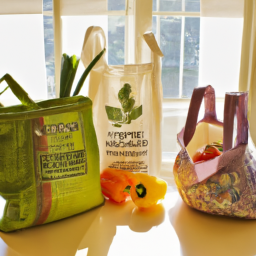
Using reusable bags is a cost-effective and environmentally friendly way to reduce plastic waste and promote sustainability. Reusable bags are not only useful for grocery shopping but also for travel purposes.
Many people are now opting for reusable bags when they go on vacations or business trips, as they are convenient and can hold a significant amount of items.
Additionally, promoting the use of reusable bags in schools can have a significant impact on reducing plastic waste. By educating students about the benefits of reusable bags and encouraging them to use them for their daily activities, we can instill sustainable habits from a young age.
Schools can organize awareness campaigns, provide incentives, and even distribute reusable bags to students, making it easier for them to adopt this eco-friendly practice.
Exploring Online Shopping Options
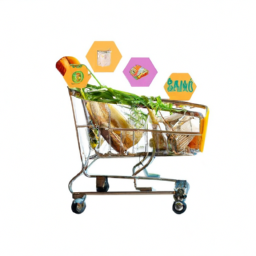
When shopping online, individuals can find a wide variety of eco-friendly products from the comfort of their own homes. This convenience of online shopping allows people to browse through numerous online retailers and discover sustainable options for their everyday needs.
However, it is important to consider the drawbacks of online shopping as well.
Benefits of Online Shopping:
- Convenience: Shopping from home eliminates the need to travel to physical stores, saving time and reducing carbon emissions from transportation.
- Wider Range of Eco-Friendly Products: Online retailers often offer a larger selection of sustainable items, allowing shoppers to find exactly what they need.
Drawbacks of Online Shopping:
- Packaging Waste: Online orders may come with excessive packaging, contributing to unnecessary waste.
- Return Process: Returning items purchased online can be cumbersome and time-consuming, leading to additional emissions from transportation.
To minimize these drawbacks, individuals can opt for eco-friendly packaging options and consolidate orders to reduce the overall environmental impact of online shopping.
Supporting Local Businesses

Supporting local businesses not only stimulates the local economy but also reduces the carbon footprint associated with long-distance transportation. When consumers choose to shop locally, they are investing in their own communities and supporting the livelihoods of their neighbors. By purchasing goods and services from local businesses, money stays within the community, creating a positive economic cycle.
Additionally, local businesses often prioritize sustainable practices, such as sourcing locally grown or produced products, reducing the environmental impact of transportation. Community involvement is also a key aspect of supporting local businesses. Many local establishments actively engage with their communities through events, sponsorship, and partnerships, fostering a sense of belonging and promoting a vibrant, interconnected community.
The Advantages of Buying in Bulk

Purchasing items in larger quantities not only saves money, but also reduces the amount of packaging waste generated. When it comes to bulk buying, there are several advantages and cost-saving benefits to consider:
Cost Savings:
Bulk purchases often come with lower unit prices, allowing shoppers to save money in the long run.
Buying in bulk reduces the need for frequent trips to the store, saving transportation costs.
Reduced Packaging Waste:
Buying in bulk means less packaging per unit of product, which helps reduce overall waste.
By purchasing larger quantities, individuals can minimize the use of single-use packaging materials.
Longevity: Investing in Sustainable Products

Investing in durable products that prioritize quality and longevity can have a positive impact on both the environment and one’s wallet. Making sustainable product choices is an effective way to minimize waste while ensuring that items last for a longer period of time.
By opting for high-quality materials and well-built products, consumers can reduce the need for frequent replacements, ultimately reducing waste and promoting sustainability. Additionally, investing in longevity means supporting companies that prioritize durability and sustainability in their manufacturing processes.
This not only benefits the environment but also saves consumers money in the long run, as they won’t have to constantly replace worn-out items. By choosing durable products, individuals can make a conscious effort to minimize waste and contribute to a more sustainable future.
How Reusable Bags Reduce Plastic Waste
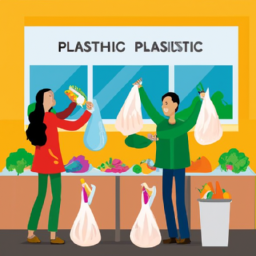
Using tote bags and other reusable bags significantly reduces the amount of plastic waste being generated. Reusable bags have a big impact on reducing plastic waste and play a crucial role in promoting sustainability. Here’s why:
Reduction of plastic waste:
Reusable bags eliminate the need for single-use plastic bags, which are a major contributor to plastic pollution.
By using reusable bags, individuals can reduce their reliance on disposable plastic bags and prevent them from ending up in landfills or polluting oceans and other natural habitats.
Promotion of sustainability:
Reusable bags are an eco-friendly alternative to single-use plastics, as they can be used multiple times.
By bringing their own bags, individuals contribute to a reduction in the demand for plastic bag production, which in turn helps conserve resources and energy.
Finding Eco-Friendly Products Online
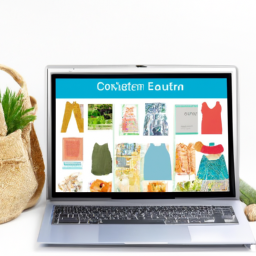
When searching for environmentally friendly options, individuals can easily find a wide range of eco-friendly products online. Sustainable online retailers offer a variety of products that are not only eco-friendly but also come with eco-friendly packaging alternatives. These retailers prioritize sustainable practices and ensure that their products are packaged using materials that are biodegradable or recyclable.
By purchasing from these retailers, individuals can reduce their carbon footprint and contribute to a greener planet. Some sustainable online retailers even offer incentives such as discounts and promotions to encourage consumers to make eco-friendly choices.
From clothing and home goods to food and personal care products, there are plenty of options available online that align with sustainability values. By making conscious choices and supporting sustainable online retailers, individuals can make a positive impact on the environment.
The Environmental Impact of Shopping Locally

Supporting local businesses not only benefits the local economy but also helps reduce the carbon footprint associated with long-distance transportation. By shopping locally, individuals can make a positive impact on the environment and their community.
The importance of community engagement:
- Local businesses are often owned and operated by members of the community, fostering a sense of connection and pride.
- Supporting local businesses helps create a vibrant and unique community, preserving its character and charm.
The economic impact of shopping locally:
- Local businesses provide jobs and contribute to the local tax base, which supports community services and infrastructure.
- Money spent at local businesses circulates within the community, creating a multiplier effect and stimulating economic growth.
Minimizing Packaging Waste With Bulk Purchases

Minimizing packaging waste can be achieved by purchasing items in bulk. This not only saves money but also reduces the amount of unnecessary packaging that ends up in landfills. Buying in bulk allows consumers to purchase larger quantities of products, reducing the need for individual packaging for each item. By purchasing items in bulk, consumers can reduce the overall amount of packaging waste generated.
Additionally, buying in bulk can also help reduce transportation costs and carbon emissions associated with frequent trips to the store. Many stores offer discounts for bulk purchases, making it a cost-effective and sustainable option. By reducing waste through bulk purchases, individuals can minimize packaging waste and contribute to a more sustainable future.
Choosing Durable Products for a Sustainable Lifestyle
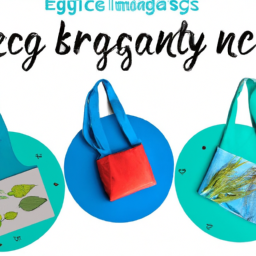
Choosing products that are built to last is a key aspect of living a sustainable lifestyle. When it comes to sustainability, durability plays a crucial role in reducing waste and promoting a more eco-friendly approach. By opting for durable products, consumers can make a significant impact on the environment and contribute to a more sustainable future.
The importance of durability in sustainable products:
- Durable products have a longer lifespan, reducing the need for frequent replacements.
- They minimize waste by avoiding the disposal of worn-out items.
- Durability helps conserve resources by reducing the overall consumption of goods.
The role of consumer choices in promoting sustainability:
- Consumers have the power to support companies that prioritize durability and sustainability.
- By choosing high-quality, long-lasting products, individuals can influence the market towards more sustainable practices.
- Consumer choices can drive innovation and encourage manufacturers to produce eco-friendly and durable alternatives.
Frequently Asked Questions
How Can Reusable Bags Contribute to Reducing Greenhouse Gas Emissions?
Reusable bags contribute to reducing greenhouse gas emissions by reducing waste and the environmental impact of single-use plastic bags. By using reusable bags, individuals can avoid the need for plastic bag production, which requires energy and resources. This, in turn, reduces greenhouse gas emissions associated with the manufacturing process.
Additionally, reusable bags can be used multiple times, further reducing the demand for new bags and the waste that ends up in landfills.
Are There Any Drawbacks or Disadvantages to Online Shopping?
There are some drawbacks and disadvantages to online shopping. One of the main drawbacks is that you can’t physically see or try on the items before purchasing them. This can lead to issues with sizing or quality. Additionally, there may be delays in shipping or problems with returns and refunds.
It’s also important to consider the environmental impact of online shopping, as it often involves packaging and transportation. However, online shopping can be convenient and offer a wider range of options.
How Can Buying Local Support Sustainable Farming Practices?
Buying local supports sustainable farming practices by reducing the carbon footprint associated with long-distance transportation. When consumers purchase locally produced food, they are supporting farmers who prioritize sustainable farming methods. This includes practices such as organic farming, crop rotation, and minimizing the use of pesticides and fertilizers.
What Are Some Tips for Effectively Storing Bulk Purchases to Maximize Their Shelf Life?
To effectively store bulk purchases and maximize their shelf life, there are a few key tips to keep in mind.
First, make sure to store items in a cool, dry place to prevent moisture and humidity from causing spoilage.
Additionally, using airtight containers or resealable bags can help maintain freshness and prevent exposure to air and pests.
It’s also important to rotate your stock, using older items first to ensure nothing goes to waste.
Proper storage practices can help extend the shelf life of your bulk purchases and minimize food waste.
How Can Investing in Longevity Contribute to Reducing Overall Consumption?
Investing in longevity contributes to reducing overall consumption by encouraging the purchase of durable products that last longer. By choosing high-quality items, individuals can minimize waste and avoid the need for frequent replacements.
Additionally, investing in products that can be repaired rather than discarded promotes sustainability. By repairing and maintaining these items, individuals can extend their lifespan and reduce the need for new purchases.
This approach ultimately reduces the consumption of resources and decreases the environmental impact of consumerism.
Conclusion
In conclusion, sustainable shopping practices offer numerous benefits for individuals and the environment. By using reusable bags, shoppers can reduce plastic waste and save money.
Online shopping provides convenience while also reducing transportation and packaging waste.
Supporting local businesses not only boosts the economy but also reduces carbon emissions.
Buying in bulk saves money, minimizes packaging waste, and reduces trips to the store.
Lastly, investing in durable and high-quality products promotes sustainability by reducing consumption and the need for frequent replacements.
By adopting these practices, individuals can make a positive impact on the environment and contribute to a more sustainable future.